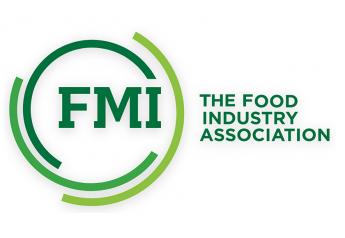Mollie Van Lieu on the “healthy” symbol for packaged foods

More reaction is rolling on the FDA’s request for comment on the idea of a “healthy” symbol for packaged foods.
From July 6, on regulations.gov, here is the United Fresh Produce Association comment, penned by Mollie Van Lieu, senior director of nutrition policy.
Notable quote:
“It is particularly important to note that unpackaged fresh fruits and vegetables often bear no labels at all. Accordingly, while a FDA-defined healthy symbol holds potential to be useful to consumers for packaged foods, the agency should consider in its research the unintended consequence of signaling to consumers that a packaged product with an icon is better or comparable to unpackaged fresh fruits and vegetables.”
The full text of the comment is below:
"United Fresh Produce Association appreciates the opportunity to submit the following comments on the Food and Drug Administration’s (FDA’s) proposed collection of research on a voluntary “healthy” symbol for packaged foods. United Fresh brings together companies across every segment of the fresh produce supply chain, including growers, shippers, fresh-cut processors, wholesalers, distributors, retailers, foodservice operators, industry suppliers and allied associations.
We strongly support FDA’s Nutrition Innovation Strategy and appreciate the agency’s commitment to align food labels with dietary advice as a tool to help consumers make healthful choices consistent with the Dietary Guidelines for Americans (DGA). Contrary to the sound recommendations of the DGA, Americans under-consume healthful foods, and in particular, fruits and vegetables. The Centers for Disease Control (CDC) reports that only one in ten Americans are consuming the recommended amounts. As such, as the agency continues to implement its Nutrition Innovation Strategy, and in
particular the healthy icon for packaged goods, we ask that the agency considers the importance of targeting increased fruit and vegetable consumption in its goals.
It is particularly important to note that unpackaged fresh fruits and vegetables often bear no labels at all. Accordingly, while a FDA-defined healthy symbol holds potential to be useful to consumers for packaged foods, the agency should consider in its research the unintended consequence of signaling to consumers that a packaged product with an icon is better or comparable to unpackaged fresh fruits and vegetables.
While we recognize that a final definition of healthy is not yet available, we ask that the agency consider if and how the symbol is used for foods that are recommend by the DGA in moderation. For example, the DGA recommends that consumers eat a wide variety of fruits and vegetables that are mostly whole, which includes all fresh produce. Some packaged fruits and vegetables, like juice and dried commodities, are encouraged under DGA in moderation. Should these packaged products be granted a healthy symbol, the agency should take precautions to avoid its use being interpreted as a suitable alternative to the “mostly whole” DGA recommendations.
With a particular focus on processed packaged foods, we encourage the agency to consider deceptive labeling in its consumer research and broader Nutrition Innovation Strategy. Products across the marketplace can be marketed to make food and beverages appear more healthful than they are by depicting images of whole, fresh fruits and vegetables despite containing no or minimal amounts of them.
For this reason, FDA has an opportunity to address potentially misleading or inaccurate labeling claims that may enable foods to unfairly compete with fruits and vegetables by signaling “healthy” through fruit and vegetable depictions. Further, FDA should consider how misleading labeling of packaged goods influences the consumer as compared to a healthy symbol. At a time when so many Americans struggle to maintain or return to a healthy weight, empowering consumers to make healthier choices with responsible labeling is important.
Despite DGA advice to consume a wide variety of whole fruits and vegetables, Americans in every age group and across socio-economic lines consistently fail to consume the amount of fruit and vegetables recommended. The COVID-19 pandemic has only exacerbated these challenges but has also shown the
opportunity to improve nutrition through foods purchased at retail.
Accordingly, the FDA plays a critical role in changing the course of the nation’s health and nutrition crisis. We thank the agency for taking a bold approach and stand ready and willing to assist as the Nutrition Innovation Strategy moves forward."







